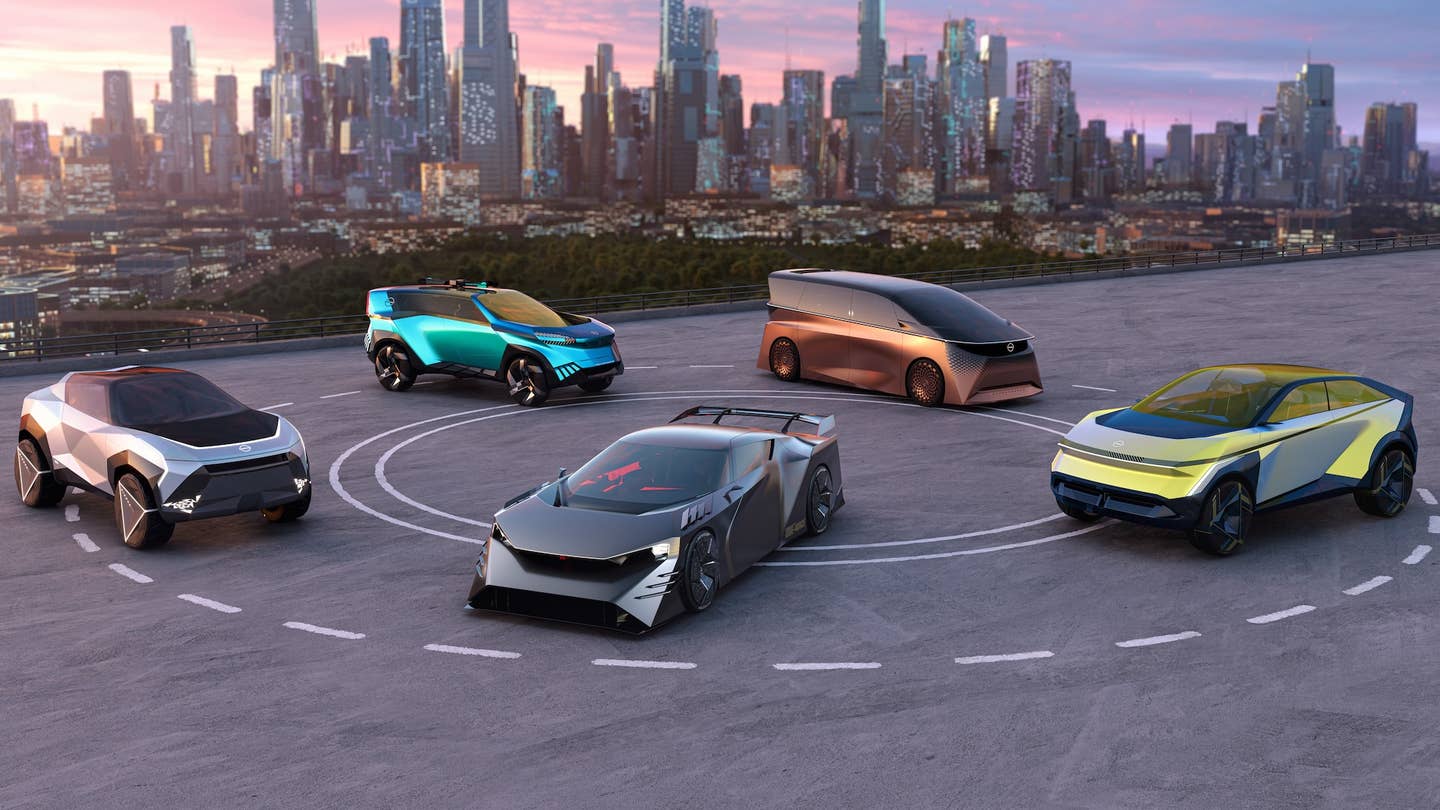Nissan went from EV leader to laggard. Now it’s trying to flip the script by beating Toyota to the holy grail of battery technology.

Nissan was once an EV pioneer; now it’s playing catch-up. But instead of trying to merely match its competitors, it wants to leapfrog them by being one of the first to bring about highly energy-dense solid-state batteries. More radical still, it thinks it can do so sooner than one of the battery technology’s biggest proponents: Toyota.
Nissan declared its intent Monday in a showing of its in-progress battery factory in Yokohama. The site will be where Nissan pilots a production line for solid-state batteries, which it expects will become commercially available by financial year 2028. Nissan expects to produce its first prototype batteries in March 2025, according to Reuters, which reports the automaker intends to produce 100 megawatt-hours of solid-state batteries monthly as of April 2028.
Nissan Hyper Force EV concept. Nissan
This timeline is both shorter and more ambitious than that of Toyota, which is one of the leaders of solid-state battery tech in cars. Toyota has already had a test vehicle rolling around for years, though its commercialization plans are typical Toyota—conservative. While Nissan aims to begin pilot production within a year, Toyota will wait at least three years until financial year 2027. Toyota has also been cagey about its total anticipated production capacity, stating only that it’ll make enough batteries for 10,000 EVs or so in 2030.
Nissan meanwhile projects having 1.2 gigawatt-hours of annual production capacity in four years. How many EVs that can supply varies depending on the type of vehicle, as it’d be enough for 20,000 EVs with a battery the size of the Leaf Plus‘s or 12,000 with a larger battery like the Tesla Model S‘s. Either would put Nissan ahead of Toyota, provided it can actually pull off the upset.
Solid-state batteries have so far resisted commercialization due to difficulties in making them functional and reliable in real-world conditions. Supposed technological breakthroughs repeatedly make headlines, but practical, affordable solid-state packs remain elusive. Being the first to achieve them would put Nissan in an advantageous position, not to mention Honda, which is interested in an EV partnership with Nissan. Its last link-up with General Motors didn’t pan out, so more than one of Japan’s top three automakers’ futures may yet be tied to Nissan’s big promises. Now let’s see if it can make good on them.
Got a tip or question for the author? You can reach them here: james@thedrive.com


